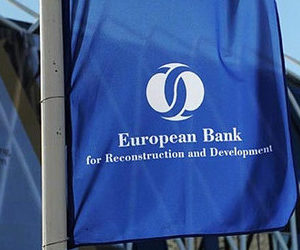It’s easy to challenge others to walk a mile in someone else’s shoes, especially if you assume that everyone else has shoes. Every day, citizens of rich countries try to explain the struggles of the world’s poorest inhabitants, using simplistic assumptions that don’t hold water. Intuitive-sounding theories such as the one best described in the well-known bestseller “Why Nations Fail,” written by Daron Acemoglu and James Robinson, are a dime a dozen.
The authors argue that poor countries are at fault for their plight because their citizens do not fight corruption and build proper institutions. This view is also fully supported by international governmental organizations (IGOs) such as the United Nations, in their taxpayer-funded work to bring Third World countries up to par with the rest of the world.
As Acemoglu and Robinson suggest, nearly all rich countries had their periods of high corruption and institutional barriers to reform, which they have overcome. But these sorts of theories neglect the role of IGOs in nurturing and fostering corruption, keeping “assisted” countries poor and politically connected dictators rich.
In my home country of Ukraine, IGOs provide political support for corrupt regimes by issuing numerous public statements on “great reforms” performed by the government despite the fact that ordinary people do not see any real changes and corresponding hope for them and their children. But IGOs’ statements are widely used by the ruling government for propaganda as an independent positive assessment of their work.
Over time, Ukraine has seen more than its fair share of corruption. At the beginning of 2015, under the guise of reform, the Ukrainian government created a new body, a nomination committee that was required to hold competitive job contests to elect the CEOs of state-owned enterprises. Half of the board was filled with ministers, while the other positions were to be filled by “respected” foreigners including representatives of IGOs such as the International Monetary Fund, World Bank, International Finance Corporation (IFC), and European Bank for Reconstruction and Development (EBRD). This board has not only failed in its stated aims of a fair and transparent nomination process, but in some cases has specifically enabled the very corruption its stated aim was to prevent.
In April 2018, following significant criticism of the appointment process, the committee was reorganized, with the number of board members reduced to eight, including representatives of EBRD, IMF and IFC. In addition, the representative of EBRD, director for Ukraine Sevki Acuner, (who was a member of this committee since its inception in 2015) was appointed as the head of the committee.
Following the appointment, strange things started to happen almost immediately.
At the news conference announcing his appointment, Acuner acknowledged that they discussed and approved rules for two nominations for the Supervisory Board members of Ukrzaliznytsia (Ukraine’s monopoly railway operator) and Ukrenergo (distribution energy company). He also said that the first stage of selection will be carried out by a reputable recruiting agency that had to be a member of the Association of Executive Search and Leadership Consultants (AESC). And it was separately stated (including in official news releases) that the recruiter was to be selected at the open tender.
Astoundingly, Acuner was himself named as head of the Supervisory Board for both state-owned enterprises. The “process” was carried out by AESC member Odgers Berndtson, but no open tenders for recruiter selection were carried out.
In addition to the conflict of interest and misinformation about a transparent tender that lead to the appointment of Acuner, the committee blatantly violated Ukrainian law. In order to minimize conflict of interests, Ukrainian law prohibits a person who has had an executive position in an organization that had any business with this particular state-owned enterprise during the previous 12 months from being appointed to a Supervisory Board of said state-owned enterprise. Acuner was the EBRD director in Ukraine and the EBRD is a large creditor for both Ukrzaliznytsia and Ukrenergo.
Two weeks after Acuner was approved by the government as the member of Ukrzaliznytsia’s Supervisory board another bizarre “coincidence” happened. The EBRD approved an additional loan of $150 million to Ukrzaliznytsia despite the fact that this company is considered to be one of the most corrupt state-owned enterprises in Ukraine with numerous scandals reported in the media. This loan will be repaid in the future by higher taxes on companies and citizens, which begs the question: Was this loan a gratitude payment for well-paid sinecures to Acuner?
Normally, officials can be held accountable via public processes. Yet, when I complained to the EBRD, it refused to investigate and merely recommended that I forward the complaint to the Ukrainian government (where it sits now, unopened and unaddressed by officials).
This sad episode provides just another reminder that crony capitalism in Ukraine and elsewhere isn’t going away anytime soon. But if taxpayers from around the developed world demand that IGOs are held accountable, then maybe — just maybe — the Acuners of the world won’t be able to keep on enriching themselves at everyone else’s expense.

